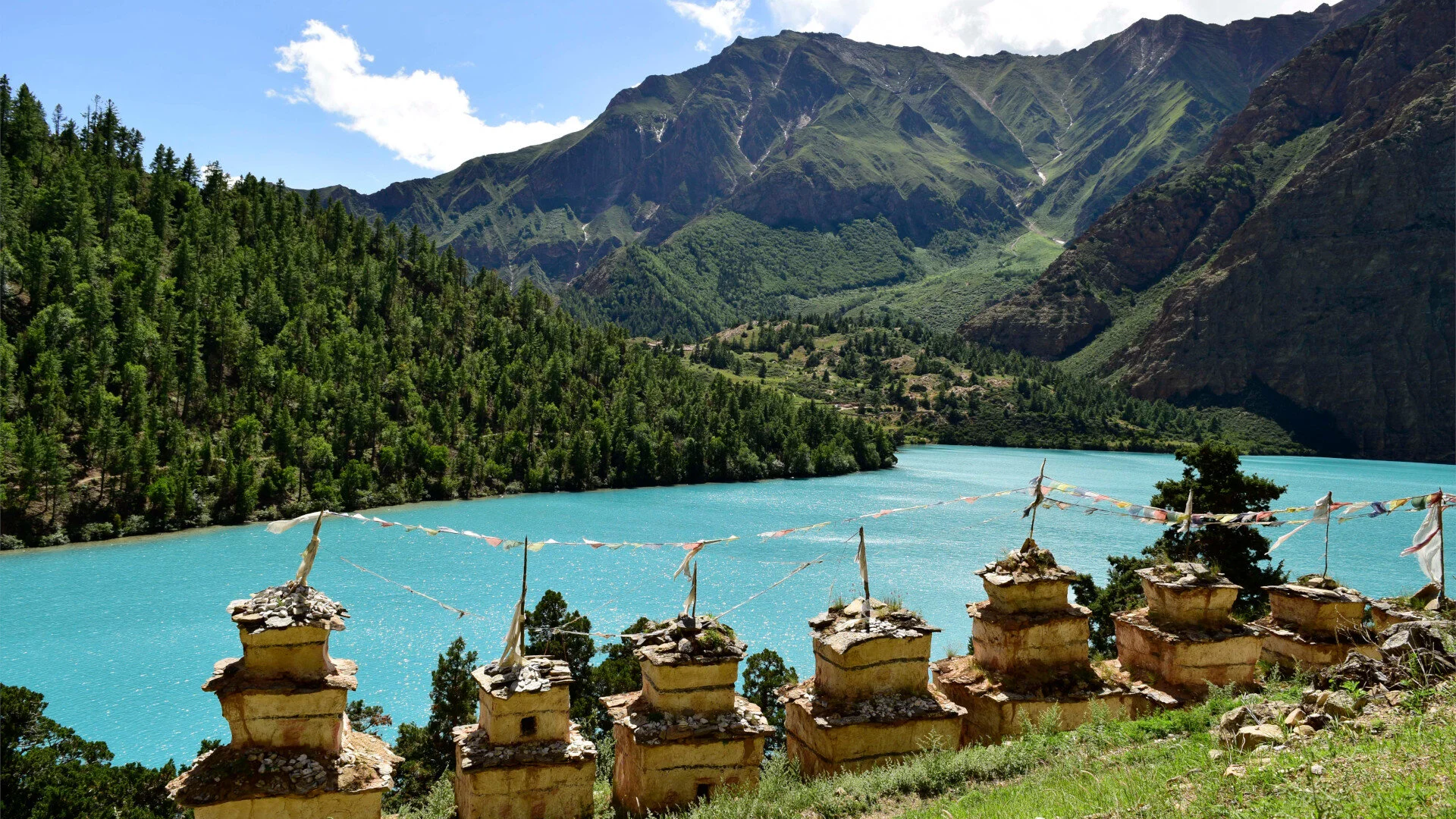An evening at the shores of water with a cup of coffee is bliss unmatched. The flow of water takes with it the vast ocean of thoughts, worries and pain. Time flies, heart sighs, and mind lightens with every drift of the heavenly waters. In the final edition of Lakes of Nepal, we dive into Phewa and its sister Begnas along with the holy Gosaikunda and unearth Dumba, the hidden gem of Mustang.
Viewing entries in
nepal travel guide
The mundane world amplified by the troubles of life at times is a burden to one's soul. Escaping into the arms of mother nature is solace beyond words. What can be more tranquil than the heavenly shores of pristine water? In its reflection, we get a chance to rediscover ourselves and let go of all our troubles.
Nepal is yonder. Its beauty is unparallel, at times feels fictitious. A step beyond its urban realm is a year back in time. One gets to experience mother nature, inhale her sweet perfume in every breath and rediscover tranquillity and bask in her lap. This nation is home to numerous lakes. Reaching its shores is an adventure, one worth every sweat and tear.
The richness of Nepal at times is unfathomable. Discovering, experiencing and understanding its various facets is a tremendous task which altogether is a lifetime experience. This journey can be aided by endeavors and knowledge of great individuals who have defied odds, broken barriers and traversed miles to unearth Nepal's beauty.
In this edition, we look into the moving temple of Bhaktapur. Commonly referred to as Biska Jatra, it is a unique celebration exclusive to the principalities of Bhaktapur. Celebrated with utmost veneration and respect, it overtime has become an intangible landmark. The highlights are the tug-of-war, vermilion festival and the tongue piercing ceremony.
Every temple has a story. Within it lies a deity who has provided some boon to its devotees. His/her celebration is an act of acknowledging their righteous act and reliving history. The Newars added pomp and flare to this celebration with mammoth chariots, traditional tunes and communal merrymaking.
Since time immemorial, humans have created temples. It is a place of worship where individuals offer their prayers and gratitude to their deities. These infrastructures are static, making it difficult for all to reach them at times. Whereas in Nepal, temples move from one place to another in select few days. A process in which, god comes to our squares and doorsteps.
Even though an imitation, over the years, the festival of Seto Matsyendranath has created its own identity. It has developed various symbols and is a timeless heritage of Kathmandu. Today it is known as Jana Baha Dyo (God of Jana Bahal of Ket twah). The idol is viewed as Aryavalokiteswara (God of compassion) by devotees.
Commonly referred to as Sindoor Jatra, it is also known as Biska Jatra of Thimi. It is one of the most vibrant festivals celebrated in Kathmandu Valley. The highlight is the ceremonial use of vermilion powder which adds a new layer of pomp and flair. The locals rejoice for four days during the new year period, devotees offer prayers and worship various gods and goddesses.
Amongst the various living goddesses of Kathmandu valley, the divinity of Kathmandu is unique. She is raised in one of the most ornate ways by her caretakers, which has not lost its traditional charm. Her valour, beauty and excellence are unparallel, and the respect shown to her is profound. She even has her very own chariot festival known as Kumari Jatra.













